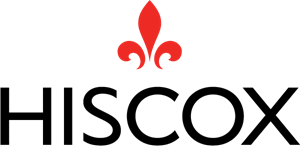Why did you want to work at Hiscox?
I first heard of Hiscox at a careers fair on campus during my final year at university. They were expanding their presence in York and invited us to visit their office. I got to meet some members of the graduate scheme, as well as senior leaders in the business and they really sold me on the atmosphere and culture of the firm.
When it comes to underwriting, the core function of the role: analysing a risk, assessing what could go wrong and deciding how to underwrite it, was really appealing to me. I turned up not knowing much about underwriting or insurance in general, but left sold on the company and the nature of the job – I wrote and submitted my application the next day.
What does your role involve?
My role is broadly split between portfolio and case-by-case underwriting. I work closely with 50 insurance experts, who are on the phone speaking to customers from our Customer Experience Centre in York. Anything the computer can’t underwrite comes to our team, so I spend most of my time underwriting whatever crosses my desk. We’ve insured everything from ceremonial robes, to white hat hackers and professional bat consultants. When we’re not dealing with individual cases, we portfolio underwrite to allow the computer systems to write more business without referral to the underwriting team.
Is it a 9-5 job?
No. My team supports our contact centre and they are open from 8am–7pm and they need us to help them write business. While my team doesn’t work shifts, there’s a lot of discretionary effort to support one another and the insurance experts. It’s where the company culture and team dynamics really shine through; we all pull together and get things done.
What do you like about working in insurance?
The industry is changing rapidly, and I get to see and be part of that in my role. In Direct Commercial Underwriting we have real ownership and responsibility for our product lines and are empowered to make the decisions we want to for both individual customers, and for the whole portfolio. It’s exciting to see a change that you have championed having an impact on thousands of customers.
Projects undertaken
We recently launched our new cyber and data product through our Direct channel, and I was given the opportunity to own that product within our team. I was involved in designing the product offering, customer journey and pricing to create an appropriate solution for small businesses. We launched last year as one of the first insurers offering an exciting new product direct to small business customers.
During a secondment to the USA, I worked on devising and piloting a new type of partnership between Hiscox and other companies in the SME marketplace. This gave me an opportunity to work on a project from conception through to launch. This involved stepping outside of my normal role, and coming to grips with a new customer proposition in a very different marketplace, while building relationships with these new partners and managing internal stakeholders. It was a very different project to my normal role and one I learned a lot from.
What skills are most useful in the role?
The three key skills I use on a daily basis are problem solving, data analysis and relationship building. We work in cycles of finding a problem, devising a solution, using data to support that solution and leveraging your relationships to get other people’s buy in. All three skills support one another in getting things done.
What would you like to achieve in the future?
I want to shape a product line or business unit of my own, doing what I do now on a larger scale. I would love the challenge of using my skills and having the authority to act of my own volition. My current role gives me the opportunity to make change, but there is a safety net in that someone else has to sign it off. I’d relish the chance to own the decisions myself, along with the resulting success or failure.
Any advice for someone wanting to get in to the sector?
Find the things you do now that demonstrate the key skills of problem solving, data analysis and relationship building and emphasise them. I didn’t do a specific insurance qualification before starting this role, but I started to develop those skills in my degree and through extracurricular activities. Once you’re in the industry then your insurance specific study is more useful, so get into the habit of working through your CII exams or other qualifications as soon as you can.
I’d also recommend learning some basic coding. It’s been a bit of a personal barrier having to rely on other people to extract data for me to analyse, because I lacked the skills to obtain it myself. A good grounding in computer basics will let you get the information you need to do your analysis much quicker. Coding skills are only going to get more useful and more relevant so it’s an area I’m keen to keep developing.
What challenges have you faced and how did you overcome them?
When I started, I did feel overloaded with information – there is so much to learn! I landed in a fully-formed functioning business that had already existed for many years in a complicated industry, transacting complex business. The key to surviving was to be willing to ask for help. I was lucky that in Hiscox there are always people to turn to and someone able and willing to help. In tough times, we pull together as a team and if I make a mistake, I know people will be there to help me.
The business I work in today is unrecognisable from the one I worked in on day one. That change is exciting and I’m always learning new things, but too much change can leave you hesitant and uncertain. Having a good team around you, who you can rely on, is key to maintaining your confidence. That confidence will grow organically over time and before you know it, you’ll be the person other people are relying on and asking for support. The challenge now is to pay it back, and offer that support to the people in your old shoes.


